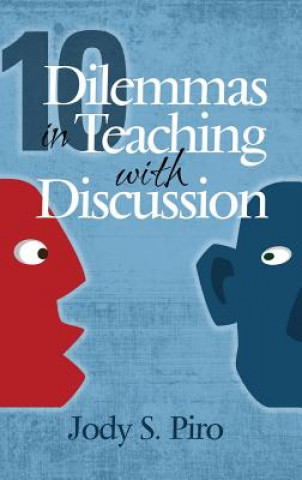
Kód: 10926038
10 Dilemmas in Teaching with Discussion
Autor JODY S. PIRO
Using discussion in instruction may facilitate spaces where students can engage with difficult and opposing ideas as a form of shared inquiry. Discussion is part of a larger curricular goal that intersects the two aspirations of d ... celý popis
- Jazyk:
 Angličtina
Angličtina - Vazba: Pevná
- Počet stran: 102
Nakladatelství: Information Age Publishing, 2016
- Více informací o knize

Mohlo by se vám také líbit
-

Reports and Resolutions of South Carolina to the General Assembly
1449 Kč -

Pharmacy OSCEs and Competency-Based Assessments
800 Kč -

Lucky O'Leprechaun in School
498 Kč -

Tamav Kereya Eskandar
365 Kč -

Connect with English Home Viewer's Guide
1145 Kč -

The Russian Revolution
238 Kč -

Scatlett O'Haya and the Seven Sprightly Spriggans
896 Kč
Darujte tuto knihu ještě dnes
- Objednejte knihu a zvolte Zaslat jako dárek.
- Obratem obdržíte darovací poukaz na knihu, který můžete ihned předat obdarovanému.
- Knihu zašleme na adresu obdarovaného, o nic se nestaráte.
Více informací o knize 10 Dilemmas in Teaching with Discussion
Nákupem získáte 311 bodů
 Anotace knihy
Anotace knihy
Using discussion in instruction may facilitate spaces where students can engage with difficult and opposing ideas as a form of shared inquiry. Discussion is part of a larger curricular goal that intersects the two aspirations of diversity of perspectives and democratic inquiry in that it challenges stereotypes and assumptions through student interactions. An essential goal of discussion is increased personal understanding of difficult issues through social learning. Discussion pedagogy engages students with issues that surpass the self and connects them with larger societal problems, allowing them to expand their perspectives and increase their worldviews of difficult issues. Discussions may have the capability to advance the public-sphere through the use of critical and reasoned discourse.Nevertheless, teaching with discussion is a complex and sometimes ambiguous endeavor. Using discussion pedagogy promotes perturbation, disturbance, and disequilibrium as natural and anticipated outcomes of instruction. Instructors using discussion often feel pulled between desirable, but seemingly contradictory, outcomes for their students: for example, wanting students to participate but also wanting them to learn to listen to others' viewpoints; hoping that they will dialogue but also wanting them to pose questions with each other; expecting they will use the text to ground their opinions and also valuing students' personal experiences as they relate to the topic under discussion. Similarly, instructors using discussion must manage instructional paradoxes: focusing on the process of discussion but also having an eye on the possible products of the discussion, such as outside actions or a culminating project; wanting to provide structure to help students understand expectations and increase student engagement and also valuing organic, less structured dialogues that highlight student interest in the topic. These contradictions may be met with a problem-solving stance leading to an either/or consequence, choosing one viewpoint over another. Yet, the paradoxical outcomes and instructional choices in discussion, though opposing, are mutually desirable. In fact, each side of the dilemma relies on the other. These types of problems for discussion outcomes and instruction are not really problems. They are dilemmas that simply need management.
 Parametry knihy
Parametry knihy
Zařazení knihy Knihy v angličtině Society & social sciences Education Teaching skills & techniques
3106 Kč
- Plný název: 10 Dilemmas in Teaching with Discussion
- Podnázev: Managing Integral Instruction
- Autor: JODY S. PIRO
- Jazyk:
 Angličtina
Angličtina - Vazba: Pevná
- Počet stran: 102
- EAN: 9781681235165
- ISBN: 9781681235165
- ID: 10926038
- Nakladatelství: Information Age Publishing
- Hmotnost: 331 g
- Rozměry: 235 × 156 × 10 mm
- Datum vydání: 02. May 2016
Oblíbené z jiného soudku
-
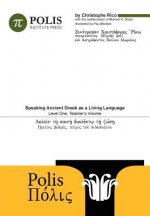
Polis
1001 Kč -

Cambridge International AS & A Level Mathematics: Mechanics Coursebook
838 Kč -

Attachment-Based Teaching
770 Kč -

Cambridge International AS & A Level Mathematics: Pure Mathematics 1 Coursebook
879 Kč -

Cambridge International AS & A Level Mathematics: Probability & Statistics 1 Coursebook
838 Kč -

Positive Discipline in the Classroom
361 Kč -

Love to Teach
1025 Kč -

Therapeutic Eye
323 Kč -

Cambridge International AS & A Level Mathematics: Pure Mathematics 2 & 3 Coursebook
1004 Kč -

COBIT 5
976 Kč -

Teach Like A Pirate
661 Kč -

Visible Learning for Teachers
1053 Kč -

Best Teacher Lesson Planner
403 Kč -

Setting Limits in the Classroom, 3rd Edition
452 Kč -
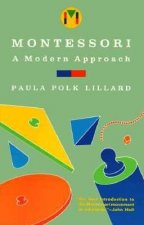
Montessori: A Modern Approach
464 Kč -

Handbook for Steiner-Waldorf Class Teachers
463 Kč -

Sun Tzu - The Art of War - The Illustrated Edition
709 Kč -

Fifty Quick Ideas To Improve Your Retrospectives
750 Kč -

Teaching as a Lively Art
390 Kč -

Classroom Instruction That Works
754 Kč -

One Minute Teacher
361 Kč -

Scrum
749 Kč -

Making Thinking Visible - How to Promote Engagement, Understanding, and Independence for All Learners
656 Kč -

Retrieval Practice
404 Kč -

Take Control of the Noisy Class
564 Kč -

Polis
1156 Kč -

Teach Like Finland
850 Kč -
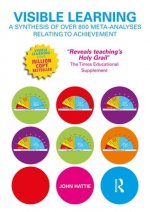
Visible Learning
1346 Kč -

Teaching Today: A Practical Guide
1613 Kč -
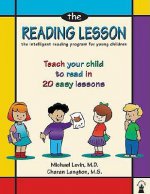
Reading Lesson
615 Kč -

Coaching in Schools Pocketbook
324 Kč -

Teach With Your Strengths
594 Kč -

TOGAF 9 Foundation Study Guide
1613 Kč -

Teach Like Your Hair's on Fire
381 Kč -

ArchiMate 2.1 Specification
1332 Kč -

Art of Coaching - Effective Strategies for School Transformation
656 Kč -

Essential 55
463 Kč -

Writing Revolution - A Guide To Advancing Thinking Through Writing In All Subjects and Grades.
731 Kč -

Implementing Information Security Based on ISO 27001/ISO 27002
803 Kč -

Cambridge International AS & A Level Mathematics: Probability & Statistics 2 Coursebook
838 Kč -

Sketchnoting in the Classroom
1068 Kč -

Cambridge International AS & A Level Mathematics: Pure Mathematics 2 & 3 Practice Book
615 Kč -

Passing the ITIL Foundation Exam
1321 Kč -

ArchiMate 2 Certification Study Guide
2333 Kč -

TOGAF Version 9.1
2147 Kč -

Essential Teaching Skills
957 Kč -

Songs, The Brain and Proficiency in Second Language Instruction
1769 Kč -

Teaching Hope
390 Kč -

Cambridge Checkpoint Science English Language Skills Workbook Stages 7, 8, 9
901 Kč
Osobní odběr Praha, Brno a 12903 dalších
Copyright ©2008-24 nejlevnejsi-knihy.cz Všechna práva vyhrazenaSoukromíCookies



 Vrácení do měsíce
Vrácení do měsíce 571 999 099 (8-15.30h)
571 999 099 (8-15.30h)